In 1970, Annie Nightingale became Radio 1’s first female DJ. The appointment was made somewhat grudgingly - DJs, believe it or not (and we’re talking about the likes of Ed “Stewpot” Stewart and Tony Blackburn here), were perceived to be “husband substitutes” and it was generally accepted that a female voice would alienate the listeners. And yet 40 years later, Nightingale is the only DJ left from the original line-up.
She has always been passionate about discovering and sharing underground and new music – quite a heady mix over the past four decades - and thanks to her championing of breakbeat, she is now known as Queen of the Breaks.
I first came across Nightingale as a teenager in the late Seventies when I listened to her Sunday-afternoon request show. Her admirers have often described her as “a surrogate cool big sister”, to quote Irvine Welsh, but had it not been for the irrefutable evidence that she worked for the BBC and therefore had to be a fully fledged adult, I would have assumed we were the same age. But that didn’t stop her from making an enormous impact on me.
In those days music was – and it still is to some extent – incredibly blokey. DJs were either smarmy and played anodyne tosh or they were supercilious and made you feel a complete loser because you hadn’t seen the Sex Pistols at the Marquee. But here was someone who sounded warm and friendly and, maybe not like me exactly, but at least like someone I might be friends with. And, most importantly, she played the kind of music I liked but wasn’t the least bit pretentious about it. It was a revelation.
Nightingale was brought up in south-west London and began her career as a newspaper journalist but a brief stint of television presenting, including a pop show in the early Sixties called That’s for Me!, made her realise that she preferred working with a microphone. Eventually she identified radio as the perfect opportunity to share her enthusiasm for music but quickly discovered that at that time, it was distinctly hostile to the idea of female presenters. She persisted, however, and since joining Radio 1 has hosted a range of shows, presented television programmes such as The Old Grey Whistle Test and made music documentaries in Russia, Romania, Iraq and Chile. In 1996, her insatiable thirst to unearth the new and undiscovered meant that for once, she was in the wrong place at the wrong time and was the victim of a vicious mugging in Havana. She now presents a radio show during the early hours of Friday morning which is listened to all over the world.
Recently we met in the foyer of a hotel near the BBC’s Maida Vale Studios. A tiny, fragile figure with dirty blonde bed-head hair, she is one of those rare people for whom age genuinely is just a number. And although our musical tastes must have diverged, oh, about 20 years ago, and she is now BBC royalty, she remains refreshingly straightforward.
HILARY WHITNEY: When did you first become really interested in music?
ANNIE NIGHTINGALE: I’ve always been passionate about music, ever since I could remember. Music has always affected me incredibly and when I was very young I just assumed everybody felt the same. To this day I feel amazement when people don’t feel as passionately or strongly about music – any kind of music – as I do. I would listen to whatever came out of the radio and that includes classical music – violins have a huge affect on me. Then I went through a period of being very annoyed by “children’s” music or gimmicky pop songs – things like “How Much is That Doggy in the Window”, which is apparently Margaret Thatcher’s favourite song – arrested development or what? But you see, I did not like being talked down to or patronised as a child. There were grown-ups who didn’t know how to talk to you and I remember thinking, remember how this feels when you grow up and try not to do this to future generations. So I always talk to kids as if they’re quite grown-up I think. I just hate being patronised.
That’s interesting because one of the things I always enjoyed about your request shows is that whilst other DJs would simply refer to “Bev from Corby” , you were always very specific about who’d made the request. For example, you might talk about “Nick from Hull who’s slogging away for his anthropology finals”.
Good! Thank you very much! I thought it was appallingly insulting to the audience to just say, “Dave from Manchester”. There are millions of Daves in Manchester - can we please be specific? I loved that relationship - the interaction with the listener and it is very much a singular thing. It is one person – the audience isn’t all together, sitting around the radio like you sit around a TV. It’s a very intimate medium.
I always had a picture of the person you talked about in my mind.
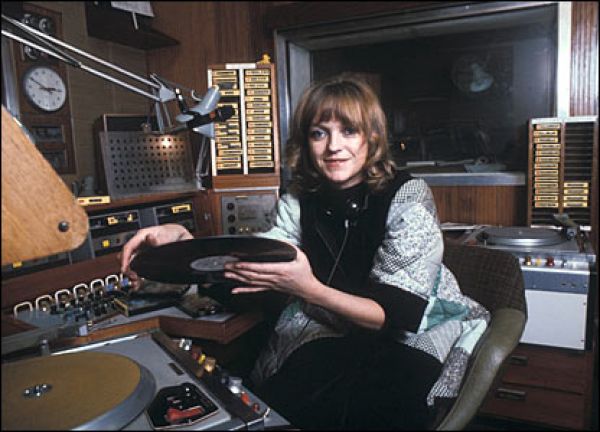 So did I. And I also had this sort of imaginary listener that I used to keep in my mind, who I used to imagine lived in Sleaford, Lincolnshire because I thought that would probably be the most difficult place from which to get to any of the major cities - Manchester or Liverpool or London or Birmingham – or wherever the action was. So I’d try and reach out to those people and not assume that they knew all the latest things that were going on because they probably didn’t – how could they? I hated coming from the suburbs but at least I could always get to London, I could always get to the action and if you couldn’t, it must have been so frustrating as a teenager. When I read the [theartsdesk] interview with Mary Anne Hobbs, what really came across to me was that she had been very isolated as a teenager and really depended on people like John Peel and Sounds magazine - to feed her passion, if you like - and those were the people I was trying to reach with the Sunday request show.
So did I. And I also had this sort of imaginary listener that I used to keep in my mind, who I used to imagine lived in Sleaford, Lincolnshire because I thought that would probably be the most difficult place from which to get to any of the major cities - Manchester or Liverpool or London or Birmingham – or wherever the action was. So I’d try and reach out to those people and not assume that they knew all the latest things that were going on because they probably didn’t – how could they? I hated coming from the suburbs but at least I could always get to London, I could always get to the action and if you couldn’t, it must have been so frustrating as a teenager. When I read the [theartsdesk] interview with Mary Anne Hobbs, what really came across to me was that she had been very isolated as a teenager and really depended on people like John Peel and Sounds magazine - to feed her passion, if you like - and those were the people I was trying to reach with the Sunday request show.
Your audience might not have been gathered around the radio together but in those days, at least we were all listening at the same time. Do you think you have the same kind of intimacy with your audience now that they can listen to your show more or less whenever they want?
I do but of course, it’s much more international – and that used to be my dream. I used to think, this is brilliant music. Wouldn’t it be great if it went all over the world? Occasionally you’d meet these big-time American DJs, they really fancied themselves, and you’d think, yeah, but you’re only [being heard] in one city. I remember going to this radio station in LA a long time ago and there was an engineer in one part of the studio and then there was a guy just sitting there with a microphone so I said, “Doesn’t he play his own records?” and they went, “No, he doesn’t have a licence to do that. We do all that.” “OK. So what does he do?” “Oh, well, he’s thinking about what he’s going to say,” and I thought, how strange. And they would be big names. They were quite inflated characters so I thought wouldn’t it be great to be able to reach all over the world so I could knock them off their perch - and now I can. It is amazing. At any given time, somebody driving across the middle of America or in Poland or in Hong Kong might be listening. It’s incredible.
But back to the beginning. Why did you decide to become a journalist?
I think I probably got the idea from a movie – it might have been Roman Holiday. I liked writing but I couldn’t see myself writing deathless poetry or great novels and I liked the urgency of now. I had a romantic vision of what it would be like - you know, I wanted to dash about shouting, “Hold the front page!” And once I’d set my sights on being a journalist, that was it. I found a course at the Regent Street Polytechnic in central London and kind of badgered my parents to let me go. They were very unsure about it because I went to a very academic school and, roughly speaking you had three options. You were either Oxbridge material, which the school didn’t think I was – I didn’t even do A levels – or you went to secretarial college or you became a housewife and those last two options didn’t appeal in the slightest, no way. So there was a kind of parental pressure, which I can understand, that I should have something to fall back on, but I was determined that I was not going to have to “fall back”. I thought, I’ve made up my mind, this is what I want to do, so here goes. But actually, I wasn’t a very self-confident person at all.
So that was quite a brave move.
Ah, but I was already a nonconformist by then. I still don’t know what it was, this sort of rebellion - but not just a teenage rebellion, it was this kind of nonconformist streak. I absolutely did not see myself [adopting monotonous tone] getting a boyfriend and getting married and having kids. I just thought, there’s a big world out there. But a lot of people just didn’t get it and you’d get a lot of opposition from your own sex – it wasn’t just blokes who were anti-feminism.
So, anyway, this nonconformist streak was definitely there from my very, very early teenage years. I don’t know where it came from. Maybe it was because I was an only child and my dad didn’t treat me as a girly girl. He wasn’t trying to make up for not having a boy or make me masculine or anything but he did do things with me that people tended to do with boys in those days – he taught me how to row and he always wanted to teach me how to drive, although I wasn’t interested. I suppose he didn’t pigeonhole me.
I always hated domestic science [grimaces] at school. I hated the word “domestic”. It’s like, “Domestos – kills all known germs!” It sounded like pure drudgery and I thought, no, I want adventure and travel and music. But I couldn’t see how I could make a career out of music because I can’t sing – which doesn’t seem right with a name like Nightingale. I had piano lessons but my co-ordination is bad, I can’t co-ordinate my left and right hands, so I could not see myself becoming a concert pianist or a professional musician of any kind, although that would have been wonderful. So that’s probably why I started talking so much about music because all I could do was be a consumer.
So did you see journalism as a way into the music industry? Or did you just think that it might be an interesting career?
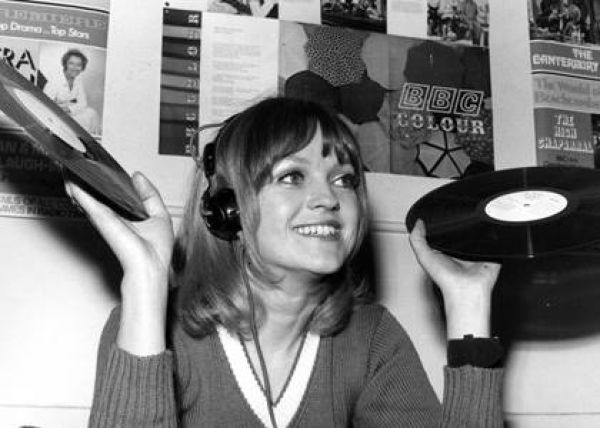 I think I just thought it would be interesting, although maybe there was a subconscious plan to get into music. One of the things I still want to do is be a music supervisor on a film – you’re not writing the score but you’re finding the music that will work in a particular moment. I often hear bits of music - usually music that I’ve been working with, instrumental stuff - and think, God, that would be so beautiful in a film. I’d love to do it but there are very few opportunities - it’s pretty much sewn up although I’ve got one or two irons in the fire. But when I was younger, I had no idea such a job existed. I grew up right beside Twickenham film studios so film was my kind of thing. I used to get told off about it at school because I’d go to the movies like three times a week. I was really quite serious about it.
I think I just thought it would be interesting, although maybe there was a subconscious plan to get into music. One of the things I still want to do is be a music supervisor on a film – you’re not writing the score but you’re finding the music that will work in a particular moment. I often hear bits of music - usually music that I’ve been working with, instrumental stuff - and think, God, that would be so beautiful in a film. I’d love to do it but there are very few opportunities - it’s pretty much sewn up although I’ve got one or two irons in the fire. But when I was younger, I had no idea such a job existed. I grew up right beside Twickenham film studios so film was my kind of thing. I used to get told off about it at school because I’d go to the movies like three times a week. I was really quite serious about it.
Why did they tell you off at school?
I suppose they thought it was frivolous although as they didn’t consider me Oxbridge material, they weren’t really that interested in me. And I already had a reputation as a raver. As soon as I was old enough I was going to clubs and raves. I thought it was fantastic although I had a big struggle with my parents to let me go out because obviously they worried about me. I was very drawn to Eel Pie [small islet in the Thames], home to many early raves and which I’ve written about several times. It was very bohemian - people were living on houseboats on the river and wandering around in weird clothes. “Nice girls” weren’t supposed to go there so, of course, I thought it was great.
But by the time you were 19 you found yourself living in Brighton and a mother.
[Cautiously] Yeah….
Which must have been quite complicated.
Ha! That’s a very good way of describing it. It was not on the cards to happen but… I don’t tend to talk about that part of my life but yeah, I was working in London as a journalist and I met a guy who was a married man. My parents actually tried to make me a ward of court but I was very headstrong so there was nothing much they could do about it. Anyway, we ran off to Brighton and I ended up having my son and I’m very thrilled that I did. I mean, having children when you’re very young [Nightingale also has a daughter] means you don’t have to worry about your biological clock, which is such a big problem for a lot of women these days.
And when you’re 19 you’ve got a lot more energy as well to look after a baby.
Yes, but you’re also very inexperienced and have very little money or sense of responsibility, so I think people are probably better parents if they’re older because they know what they are doing. I didn’t. I didn’t feel like a grown-up, never mind a parent. I just thought, well, this is part of the adventure.
But I didn’t have a family when I first got to Brighton so I got a job on the local weekly paper, the Brighton and Hove Gazette, which was great. I had to prove myself to them and they were such fun. When I first got there I had to go on this massive pub crawl with them all and I knew I was being tested and that if I could come through this pub crawl with my head held high, I’d be OK. It was nothing to do with how well you could write, it was more about fitting in.
I wasn’t at all ambitious - I was too busy having a good time – and then the editor, who was also the editor of the Brighton Evening Argus said, “Right. You’ve got the job of features writer on the Argus," which was very scary because this was a definite notch up, working with people I had huge respect for, who were all on their way to Fleet Street. But it was very good for me. They were all brilliant writers - the wit that used to fly around the office was amazing – and although I was the only girl, I was always made to feel as if I was one of them which is why, when I tried to get into Radio 1 and they said “No women” I was like, “What are you talking about?” I’d never experienced this before. I mean, by then I’d written for magazines and been on TV and there had been no problem at all about being a woman – it didn’t come into it. You were either good at your job, or you weren’t, that’s all that mattered. That’s why I was so outraged when Radio 1 just refused to consider me, just because I was a woman.
You showed incredible tenacity, trying to get into Radio 1. Did you ever think about giving up?
Yes, there was a point when I thought, to hell with it, if that’s the way they’re going to be, and I was always writing about them, attacking them in the press but, obviously, in the end I didn’t give up. The weird thing is that when I finally did kick the door down, it was 12 years before another woman joined, and that was Janice Long in 1982. I mean, I really started to think, maybe nobody else wants to do this? Maybe it's a really freaky thing to want to do. But now there are obviously lots more [women DJs] and I’m very pleased. Now it’s not an issue, as it shouldn’t have been in the beginning.
So what was it like at first?
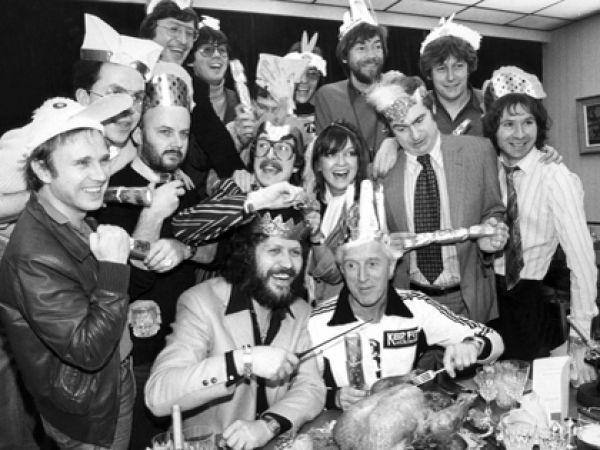 [Groaning]. When I first started they asked me if I knew how to work a desk and I didn’t know what they were talking about. You must have seen what a recording studio looks like – it’s incredibly complicated. I was given a crash course in operating the desk but I didn’t really understand and I felt too intimidated to ask again. And then there was my lack of co-ordination, just like when I played the piano. I tell you what it’s like, it’s like if you were a passenger on a jumbo jet and suddenly both the pilot and the co-pilot flake out and you’re told, “Right, you have got to pilot this plane in mid-air with no previous experience or training.”
[Groaning]. When I first started they asked me if I knew how to work a desk and I didn’t know what they were talking about. You must have seen what a recording studio looks like – it’s incredibly complicated. I was given a crash course in operating the desk but I didn’t really understand and I felt too intimidated to ask again. And then there was my lack of co-ordination, just like when I played the piano. I tell you what it’s like, it’s like if you were a passenger on a jumbo jet and suddenly both the pilot and the co-pilot flake out and you’re told, “Right, you have got to pilot this plane in mid-air with no previous experience or training.”
You see, that first generation of Radio 1 DJs (pictured above at a Christmas party) had all been on the pirate ships, they knew what they were doing and they loved showing off technically. Well, that’s probably unfair, they were probably very enthusiastic but I had this huge woman-driver complex and I was aware that they were waiting for me to make some massive mistake which is exactly what I did during my very first show – I stopped the record that was actually playing while it was being broadcast.
That must have been excruciating.
It was. Eight seconds dead air time. It's like a lifetime.
What was it like when you came off air?
Everyone was horrified. But now when I look back I think, well, perhaps it was a good thing to get it out of the way although every week I’d discover something new to go wrong. I suppose it keeps you on your toes and how else are you going to learn except for being chucked in at the deep end? I had done a bit of local radio but technically it didn’t compare. Funnily enough, two days ago I found that I’d got John Lennon doing a trail for me. “Hello, it’s John and Yoko and you’re listening to Anne Nightingale and she’s going to be twittering.” How prescient was that?
You had a very good relationship with The Beatles, didn’t you?
Yeah. I first interviewed them for the Argus. I was very surprised that they let me near them because I was just this junior reporter in Brighton but the regional press had a lot more power in those days and The Beatles worked very hard, they did a lot of promotion and publicity, it was seen as part of the job. I thought, they must get asked the same questions every day so I’ll try and make this a bit more fun for them so I said to John, “So, John, you’re the difficult one?” The thing was that I recognised that they were the same kind of nonconformist people that I’d been hanging out with in Richmond and Eel Pie. I got them. This was a new generation of young people doing whatever they were doing for young people and not trying to copy what the adults were doing.
I remember when The Kinks, for example, had been going for a few months and I suddenly thought, this whole thing is not going away. And it was a very exciting moment. This whole thing that they were building – The Who, The Beatles, The Rolling Stones, The Kinks – this was actually taking over all that old traditional light entertainment. They were blowing away the establishment and that was very exciting.
You’ve said that although the Beatles changed everything, nothing was ever as exciting as The Who until the Prodigy came along.
Yeah, well they [The Who] were so dangerous. [Keith] Moon had this incredible energy and Pete [Townshend] and Roger [Daltrey] were at each other’s throats the whole time so there was always the possibility there was going to be a fight. I mean, Roger had been described as “a vicious Mod” so there was a lot of tension and energy and they would do things like suddenly turn all the lights on the audience and you’d think you were about to be shot! There was that kind of excitement – they were downright dangerous and the audience felt part of it. They were visually way ahead of everybody else – well, The Stones didn’t really do anything visually apart from Mick strutting around because they were concentrating on the music and The Beatles were never allowed to develop their live shows because of all the screaming girls, which is why they stopped touring.
But didn’t you find punk exciting?
Yeah, I mean punk was, well, punk was different. That was very nihilistic. Yeah, that was exciting but you didn’t think you were going die at a Clash gig, whereas with The Who, it was like a war going on. They were the front line, fighting with each other, and the audience somehow got dragged into it.
But you did like punk?
Of course! Punk was very important because by then rock music had become part of the establishment – it had become safe and boring, so something had to come and blow it out of the water and it was quite difficult to shock people by then. The Stones had shocked people by urinating in public and there was that famous headline, “Would you let your daughter [go out with a Rolling Stone]?" and all that kind of stuff.
Punk was about making nasty music – it wasn’t about being a good musician, in fact a lot of people had to pretend they couldn’t play. But what I think is really significant is that disaffected youth has always needed to identify with something and I’ve always said that we are very fortunate in this country to have all these different youth cultures that have developed over the years – it just doesn’t happen in other countries - and I think it’s very much to be encouraged. I meet people - young people, obviously - who say, “You were so lucky to be around in the Nineties,” – never mind earlier, people are now yearning for the Nineties! – and I say, “Fuck! This is a very exciting time for your generation, you’ve got grime and dubstep, so go out and be part of it, even if it means going to a gig on a horrible nasty wet Thursday night and there are only 20 other people there and it’s very hard to get home afterwards - you must be part of it. If you want to enjoy and nurture it, you must be part of it. These things don’t just happen by themselves.
I thought I’d do my bit by writing about it but there’s a much better way, which is to introduce people to music by playing it to them, which obviously is what I do now. Of course, when I got to Radio 1 and met students at gigs they’d say, “What gives you the right to play whatever you like on the radio?” which is a fair point. I don’t really know if anything does give me the right to do that but I try to play the best stuff I can and I don’t have anything to do with the playlist, that’s not what I’m doing this job for.
Have you ever had to take your cue from the playlist?
No. And that, I think, has been the secret to the longevity of my career.
Do you also think that another reason might be because some of those early male DJs saw radio as a stepping stone to a career in television whereas you were always passionate about the music?
That did happen at one time, certainly, but it worked both ways. People would come to work in radio because they wanted to be in TV and then TV people got invited to be on the radio. Sarah Cox started off as a model, then she went into television and she’s ended up at Radio 1 so there’s no one route.
Did they ever try to restrict you to the playlist?
I think in the beginning that they probably did. The first series I ever did was in the days when we weren’t allowed just to play non-stop music all day long because of the Musicians Union regulations so I reviewed records because it was a kind of loophole which meant we could play what we wanted – I used to play lots of reggae. Then I went, “I wanna be on in the evening,” because that’s when all the cool music started and they said, "OK." You could be more experimental in the evening – and I could never play stuff that I didn’t believe in. I’m not a good enough presenter or liar. I’m not saying all presenters are liars but I couldn’t do it, it really wouldn’t be convincing and I think it makes anyone who has to do it very uncomfortable.
Nowadays, if you’re a daytime presenter you are almost perceived as more of an entertainer, it’s more about your personality than the music. I’m thinking about Fearne [Cotton], I mean she loves rock music and she’s now being parodied but I think she should be very proud of that. I really like Fearne but with daytime people it’s more about their personalities - they’re not expected to talk so much about the music - whereas the evening people from Zane Lowe onwards, that’s all specialist. We have two production offices at Radio 1, one is called daytime, one is called specialist, and that really tells you all you need to know. All the specialists choose their own music.
Wasn’t there an expression, “Numbers by day and reputation by night?”
Yes, and that probably hasn’t changed - some things don't, despite all the technological changes. But the pressure is the same - I always want to know how many people have listened to my show, even though I’m on late at night and they go, “Oh, it doesn’t matter much.” But it does. If no one’s listening, you shouldn’t be there.
You must have to listen to a simply enormous amount of material.
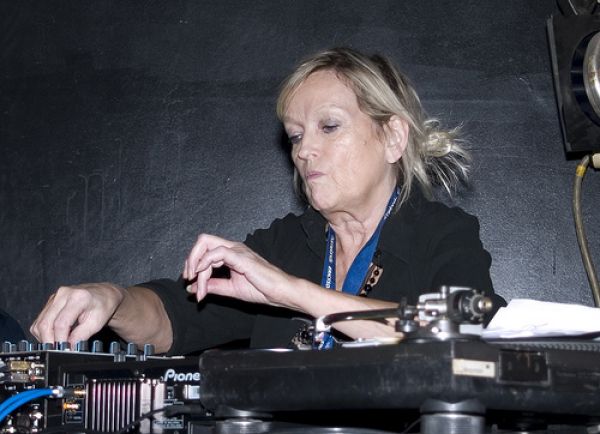 Absolutely. It’s a kind of endless despair and you think, I can’t keep up with it all. There are only 24 hours in the day and even if you never had any sleep, you could never listen to everything. One tune used to take three minutes, nowadays there’s up to eight or 10 mixes all of which may last eight to 10 minutes each. So do the math – it’s just not possible. But you can tell almost right away what is not suitable for your show and that’s your priority. And of course, it’s all downloads now and you can't download it – it’s a very clever idea – until you’ve given some feedback. But I think it’s good because everybody wants feedback, we all do. But there are no shortcuts and I’m constantly worried about that.
Absolutely. It’s a kind of endless despair and you think, I can’t keep up with it all. There are only 24 hours in the day and even if you never had any sleep, you could never listen to everything. One tune used to take three minutes, nowadays there’s up to eight or 10 mixes all of which may last eight to 10 minutes each. So do the math – it’s just not possible. But you can tell almost right away what is not suitable for your show and that’s your priority. And of course, it’s all downloads now and you can't download it – it’s a very clever idea – until you’ve given some feedback. But I think it’s good because everybody wants feedback, we all do. But there are no shortcuts and I’m constantly worried about that.
I also commission new mixes every week by completely unknown people, usually on the basis that I’ve heard perhaps two pieces of music that they’ve done, one of their own, and then one remix or something else, and then give them 20 minutes or half an hour of national airtime. It’s a gamble every time but that’s what I’m there for. It’s like having a gallery and going, “Put your pictures up here.”
So tell me about what you are doing for the Women of the World festival at the Southbank Centre.
Well, first of all, I’ll be in discussion with Jude Kelly, so that should be great because she’s got a fantastic reputation, and afterwards I’m doing a DJ set but I’m going with an open mind. I’ve no idea how it’s going to work. It’s going to be quite funny, doing a chat and then playing some tunes – whether people will get up and dance or just sit there, I have no idea.
And is it going to be just music by women?
No, no, no. But last year we made a two-hour mix for my 40th anniversary at the BBC, which I’m really proud of. I worked on it with a guy from Radio 1 and we literally assembled hundreds of tunes and I said, “I only want the piano break from this,” or, “I just want this bit from that, what can you do with it?” so I’m going to play some of that at the WOW festival because I want to see how it works. Everybody loved it on the radio but I haven’t played it live anywhere yet, so I’m very excited about that.
It’s sometimes quite hard to tell what’s going to work in a club. Sometimes people won’t dance before midnight. You keep throwing stuff at them and you wonder what it’s going to take and they’re still standing on the edges and they just won’t get out on that dance floor. And then there’s just that one tune - and it isn’t always the same tune – and it just takes off. You always think you’ve failed until people start dancing – they might say, “Oh, we’re really loving it but we’re just listening to it at the moment,” but if you’re DJing, you’re criteria is, how many people are on the dance floor? Or if they’re on the dance floor and they start leaving you automatically start wondering what you’re doing wrong. Now clubs are all non-smoking, one minute everyone’s there and then suddenly they all walk off and you think, oh my God, they hate this tune, they hate what I’ve done. This is terrible. But, of course, they’ve probably just gone for a cigarette but you can’t go running after them saying, “Don’t you like the music?” You’ve got to stick it out and carry on.
So I think WOW will be very odd in that way but hopefully because of the talk beforehand I’ll be able to say, “Look, this is what I’m going to do, please get up and dance to it.”
The live events you do now must be a million miles away from Radio 1 personal appearances you used to have to do.
God, they were awful. Really humiliating. They’d give you a mike on a long lead and I’d go, “But I’ve got to put the records on,” and they’d say, “It’s all right love, we’ll do that.” “But people have come to hear the kind of stuff I play on the radio.” “Oh, don’t worry about that.” Thank goodness for acid house because that changed how DJs were perceived and you were no longer expected to be an entertainer and give cash away and judge Miss Wet T-shirt competitions and all of that, for which I will be eternally grateful.
Do you want to tell me about the film you’re making with BBC Four? I know the working title is Shaken But Not Disturbed
It’s something I’ve wanted to do for a long time. Like I said, I’ve always been fascinated by the British underground, these youth cultures that I’ve got so caught up with. I’ve nurtured them right from my bohemian days to the whole Sixties explosion to punk and then acid house – acid house had a really big affect on me, I was reborn with acid house – to grime and dubstep. There’s something rather wonderful about the British psyche that whenever the establishment comes and says, “Oh, I’ll take care of this”, - be it rock or punk or whatever – “we’ll put lots of money into it and make it all respectable,” and it loses all its charm, someone always comes along with a brand-new way of doing things. I’m very proud of that and I’m just amazed that other countries don’t have it. You can’t force it, you can’t make it happen, it has to be a kind of generic thing and that’s kind of why I carry on doing what I do because I really want to encourage it. I don’t want to be actually part of it or anything like that, that would be crazy, but I like to help people get a bit of airplay and get that first rung on the ladder. I’m just the conduit, you know? So in the film, I'm trying to make these links between all these extraordinary bursts of music that have occurred over the years and why they happen when they do. Who are the architects who have made these changes happen in our society and what else is going on? What is the background to it all?
Do you ever feel a bit nostalgic and think, hey, I think I'll play something by The Faces today?
I've got like this jukebox in my head and when I heard Wretch 32’s latest track, “Unorthodox”, I thought, wait a minute, that is the bass line from The Stone Roses' "Fools Gold". I sometimes do what I call compare and contrast and play the new track alongside the old one, so I played The Stone Roses the other night when I wouldn’t normally play anything that old because it doesn’t fit into the Radio 1 demographic - and I’m specifically playing new underground music so I don’t play old hits. But when someone is sampling this kind of thing, it’s actually quite interesting. I’m so grateful to Kanye West who sampled “21st Century Schizoid Man” by King Crimson because it’s one of the first things I got involved with on Radio 1 so I was able to use it on my anniversary mix. And if there’s one band that came out of prog rock really well – because let’s face it, most of it was... well, anyway – [Fripp] was a great friend of mine, I hope he still is, and the fact that all those years later someone like Kanye West samples it is perfect. Sampling is very, very interesting.
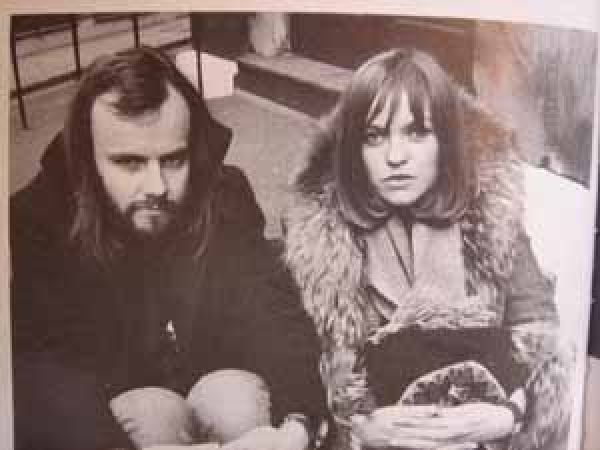 People say to me, “Are you still listening to pop music?” which is so annoying. I had a real row with the guy on BBC Breakfast when I was on there a few months ago. He was going, “OK, you play all this weird stuff but I bet you go home and listen to Jimi Hendrix in the evening,” and I was… [exasperatedly searching for a word] I was actually quite annoyed. We had quite a row. How dare he! I’m totally committed to this, it takes over your life and you can’t pretend – what would be the point of that? It’s ridiculous. But it made me realise that I’m the one who’s out of synch with the world. I can’t explain it except that you know, John Peel (pictured with Nightingale above) was the only other person [who was like that] and I don’t think the BBC would really have accepted me if it hadn’t been for him, so he’s very important to me personally, as well as all the things he did for so much music. We played quite a lot of similar things but we had different agendas and some of the things I play he wouldn’t have touched.
People say to me, “Are you still listening to pop music?” which is so annoying. I had a real row with the guy on BBC Breakfast when I was on there a few months ago. He was going, “OK, you play all this weird stuff but I bet you go home and listen to Jimi Hendrix in the evening,” and I was… [exasperatedly searching for a word] I was actually quite annoyed. We had quite a row. How dare he! I’m totally committed to this, it takes over your life and you can’t pretend – what would be the point of that? It’s ridiculous. But it made me realise that I’m the one who’s out of synch with the world. I can’t explain it except that you know, John Peel (pictured with Nightingale above) was the only other person [who was like that] and I don’t think the BBC would really have accepted me if it hadn’t been for him, so he’s very important to me personally, as well as all the things he did for so much music. We played quite a lot of similar things but we had different agendas and some of the things I play he wouldn’t have touched.
What about your friends your own age? Do they ever say, “Oh, Annie, can't we just listen to some Julio Iglesias?” Or do they know better?
One of my friends is a lot younger than me but she calls it [the music] root-canal work. I say, “All right, you want to come round? I can't afford to have an evening not listening, I’ll have to put stuff on.” So my friends have to experience it, whether they like it or not. I’m in this very freaky situation because now John’s gone there’s nobody I know in my age group who remotely likes this kind of thing. I don’t understand why. I really don’t. I’m driven by it. It grabs me by the throat. I listen to so many new tracks ever week and I think, no, that's not it, that's not it, and then suddenly - ping! That's it! I still get the same buzz I always have done. I kind of need it.
- Annie Nightingale will be DJing and in conversation with Jude Kelly, artistic director of the Southbank Centre, on Saturday 12 March as part of WOW – Women of the World festival
- See what's on at the Southbank Centre
- Annie Nightingale's Radio 1 website

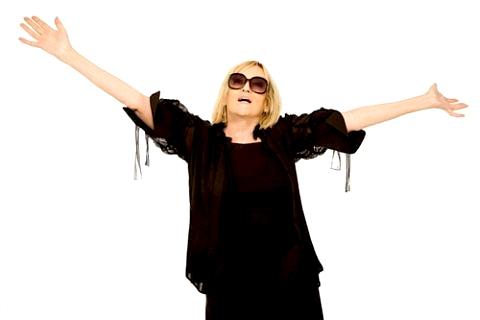




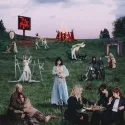

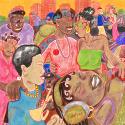
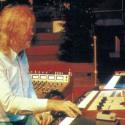
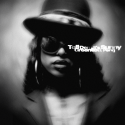
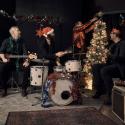
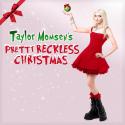
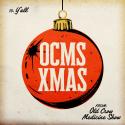
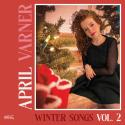
Add comment